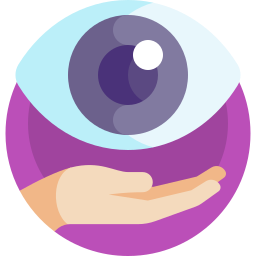Your Eyes Can Light Up Someone’s World.
Your eye donation can restore vision and change lives. Register now to make a lasting impact.

Why Donate Your Eyes?
Over 12 million people worldwide suffer from corneal blindness, yet one donation can restore sight to two people. With so few donors, your pledge can be life-changing. Give the gift of vision today!

Restore Vision
Eye donation can help someone regain their sight, giving them the chance to live independently again.

Help Those in Need
Eye donation can help someone regain their sight, giving them the chance to live independently again.

A Simple, Selfless Act
Eye donation can help someone regain their sight, giving them the chance to live independently again.

Leave a Legacy
Eye donation can help someone regain their sight, giving them the chance to live independently again.
How To Donate Eyes?
Step-by-Step Process

Register as an Eye Donor
Signing up as an eye donor is easy and life-changing! Take the first step by registering on our website or reaching out to your local eye bank today.

Know the Criteria
Eye donation is possible after death, regardless of age, gender, or most health conditions, except for certain infections.

Make Sure to Inform Your Family
Inform your family about your wish to donate your eyes, as their consent is essential.

After Death
To restore sight, eyes should be donated within six hours of passing. The quick, professional procedure doesn’t impact funeral plans—act fast to make a difference.
Who Can Donate Eyes?
Eye donation is open to almost everyone, regardless of age or health condition. The only exceptions are those who have infectious diseases like HIV/AIDS, active tuberculosis, or severe eye infections.

No Age Limit
People of any age can donate their eyes as long as they are in good overall health.

Health Considerations
You do not need perfect eyesight to donate your eyes. The health of your eyes is more important for donation.

Other Conditions
If you’ve had conditions like cataracts or used certain eye medications, consult with your healthcare provider to ensure eligibility.
The Life-Changing Impact of Your Eye Donation
Eye donations restore sight to people suffering from corneal blindness, which is one of the leading causes of blindness worldwide. In many cases, a single corneal transplant can enable someone to lead a normal life, bringing back the gift of sight.
Frequently Asked Questions
Common questions that people may have about eye donation.
1. Who can donate eyes?
Anyone, regardless of age, gender, or most health conditions, can donate eyes. Only those with certain infectious diseases are ineligible.
2. When should eyes be donated?
Eyes must be donated within six hours of death, so timely coordination with an eye bank is crucial.
3. How can I register as an eye donor?
You can sign up through an official eye bank, a hospital, or online donor registries. Informing your family is essential, as their consent is required.
4. Does eye donation affect funeral arrangements?
No, the retrieval process is quick, respectful, and does not disfigure the donor’s appearance.
5. Is there any cost involved for the donor’s family?
No, eye donation is free. Eye banks cover the procedure’s costs.
6. Can people with poor eyesight or eye conditions donate?
Yes! Even those with conditions like cataracts or poor vision can donate, as the corneas are used for transplants.
7. What happens after eye donation?
The donated corneas are evaluated, preserved, and transplanted into patients suffering from corneal blindness.
8. How do I ensure my wish to donate is honored?
Register as a donor, inform your family, and keep eye bank contact details accessible for immediate coordination.

Become a Lifesaver Today
You can make a difference by registering today as an eye donor. It takes just a few minutes, but your decision could help restore sight to someone in need. Your eye donation could change someone’s life forever.
